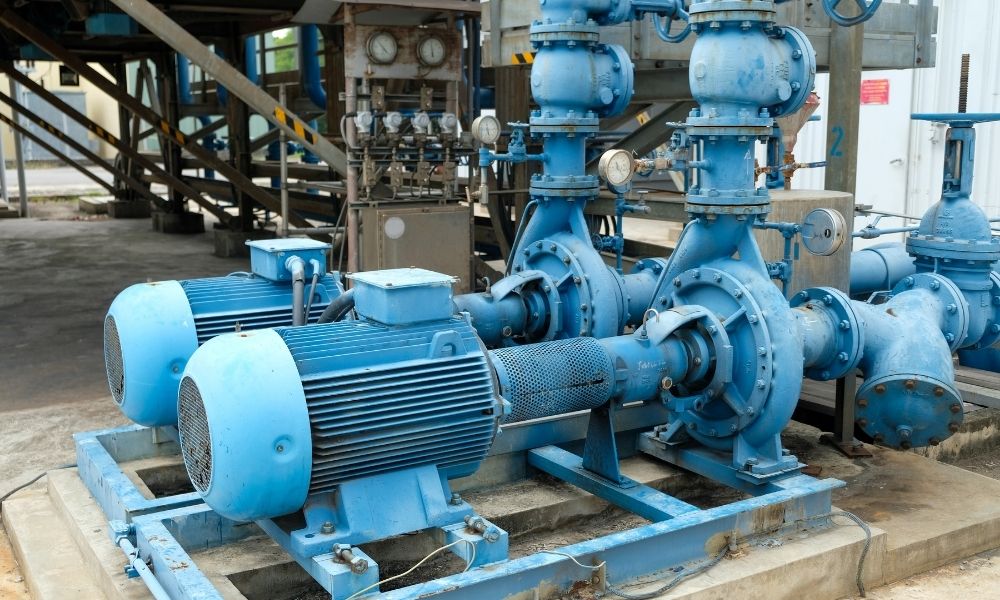
Introduction
Operational safety in downhole shaft installations is a top priority in the oil and gas industry. As exploration continues to push the limits of depth, pressure, and temperature, traditional materials often fail to deliver the performance and durability required. That’s where Inconel 718 Bars come in—offering a powerful combination of strength, corrosion resistance, and reliability in extreme environments.
In this blog, we’ll explore how Inconel bars, particularly Inconel 718, enhance the safety and performance of downhole shaft systems. Whether you’re a field engineer, project manager, or procurement officer looking for the right material, understanding the advantages of Inconel bars can help you make more informed, safety-driven decisions.
What Are Downhole Shaft Installations?
Downhole shafts refer to the boreholes or vertical shafts drilled deep into the earth, primarily in oil, gas, and geothermal industries. These shafts can extend several kilometers below the surface and are subjected to:
- Extreme pressure and temperature
- Corrosive fluids (e.g., hydrogen sulfide, carbon dioxide, saltwater)
- Mechanical stress and fatigue
Because of these harsh conditions, the materials used in downhole components—like casings, tubing, shafts, and support bars—must be exceptionally durable and safe.
Why Inconel 718?
Inconel 718 is a nickel-chromium superalloy designed for exceptional mechanical strength and corrosion resistance. It is especially suited for high-pressure and high-temperature environments, making it a perfect fit for downhole shaft systems.
As a leading Inconel 718 Bars Supplier, we’ve seen this material outperform others in critical oilfield applications, thanks to its combination of unique properties.
Key Properties That Enhance Operational Safety
1. Superior Corrosion Resistance
Downhole environments are rich in chlorides, hydrogen sulfide (H₂S), and carbon dioxide (CO₂)—all of which accelerate corrosion. Inconel 718 bars are highly resistant to:
- Sulfide stress cracking
- Chloride-induced pitting and crevice corrosion
- Acidic and saline conditions
By reducing the risk of corrosion, Inconel bars minimize failure rates and ensure safer long-term operation.
2. High Tensile and Yield Strength
Inconel 718 boasts a tensile strength exceeding 135 ksi (930 MPa) and yield strength around 75 ksi (517 MPa). These strength levels allow the bars to endure:
- Torsional forces during drilling
- Axial loads in deep shafts
- Thermal expansion during extreme heat fluctuations
This ensures the structural integrity of critical downhole components and eliminates the risk of sudden failure under stress.
3. Excellent Creep and Fatigue Resistance
Many shaft failures occur not from one-time overloads, but from repeated stress cycles (fatigue) or long-term exposure to high temperatures (creep). Inconel 718 maintains mechanical stability in:
- Temperatures up to 700°C (1290°F)
- Cyclic loading in rotary drilling
- Prolonged high-pressure exposure
This significantly enhances reliability and safety in continuous operation.
How Inconel Bars Improve Safety in Real-World Downhole Applications
Pressure Integrity
In downhole shafts, any compromise in pressure containment can lead to catastrophic blowouts. Inconel 718’s strength ensures tight seals, robust casing supports, and fail-safe designs, especially in high-pressure wells.
Thermal Stability
Thermal cycling from rapid temperature changes can cause material expansion and contraction, leading to cracking. Inconel bars maintain their structural integrity, helping avoid accidents related to thermal shock or metal fatigue.
Reduced Equipment Failure
Corrosion or metal fatigue in support bars or connection elements can cause tool failure, equipment drop, or even full well collapse. Inconel bars resist such deterioration, increasing uptime and decreasing maintenance.
Improved Tooling Accuracy
Precision is crucial in downhole drilling and monitoring. Using Inconel bars in key components (like logging tools or stabilizers) ensures dimensional accuracy is maintained under stress—keeping readings accurate and operations safe.
Comparison with Other Materials
| Property | Inconel 718 | 316 SS | Carbon Steel |
| Tensile Strength (MPa) | 930+ | 515 | 370–550 |
| Max. Temp. (°C) | ~700 | ~425 | ~250 |
| Corrosion Resistance | Excellent | Moderate | Poor |
| Fatigue & Creep Resistance | Excellent | Average | Poor |
| Cost | Higher | Moderate | Low |
Although Inconel 718 is more expensive, the life-cycle cost and safety benefits make it far more economical in critical applications like downhole shaft installations.
Applications of Inconel 718 Bars in Downhole Systems
- Drill collars and stabilizers
- Wellhead components
- Casing hangers
- Logging and measurement tools
- Tubular support elements
- Connector rods and mandrels
Every application listed above requires long-term reliability and zero tolerance for failure, which is exactly what Inconel 718 bars provide.
Selecting the Right Inconel 718 Bars Supplier
Choosing the right Inconel 718 Bars Supplier is as important as choosing the material itself. A reputable supplier ensures:
- Full traceability and mill test certificates (MTC)
- Adherence to ASTM B637 and other global standards
- Custom sizes and shapes to fit your specific downhole design
- Quality assurance through ultrasonic testing, hardness checks, and third-party inspections
With growing demand in offshore drilling and geothermal sectors, partnering with a supplier who understands your technical and safety requirements is essential.
Conclusion
Operational safety in downhole shaft installations hinges on the quality of materials used in constructing and supporting key components. Inconel 718 bars offer a suite of advantages—from corrosion resistance and mechanical strength to thermal stability and fatigue resistance—making them the gold standard for these demanding applications.
If you’re planning a high-pressure or corrosive well project, investing in Inconel 718 is a strategic move toward maximized safety, minimized downtime, and improved performance.





